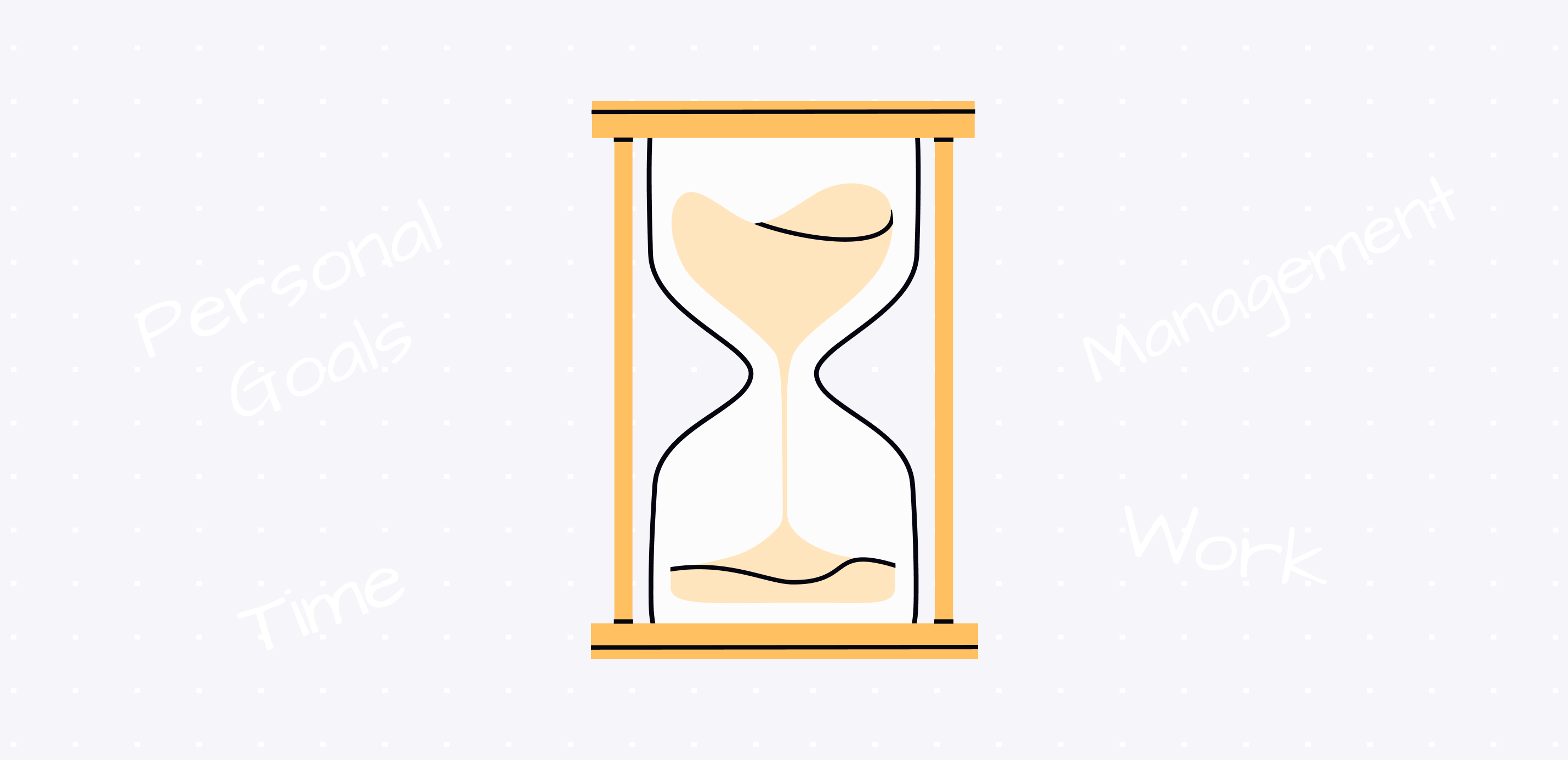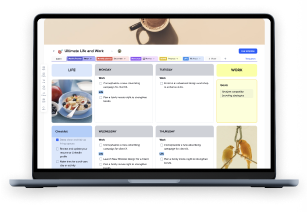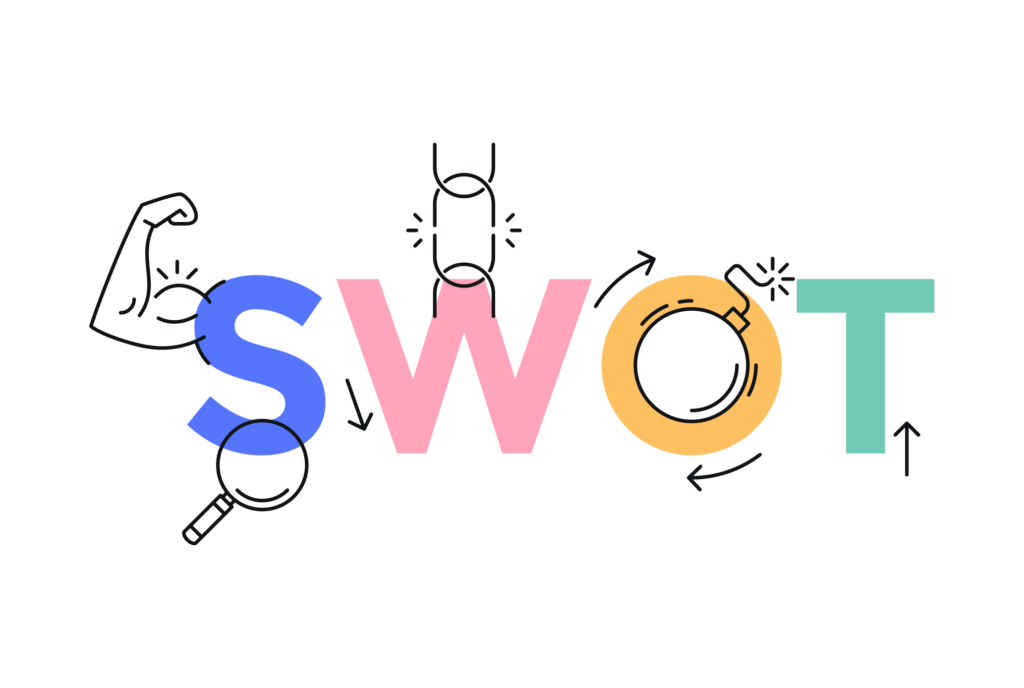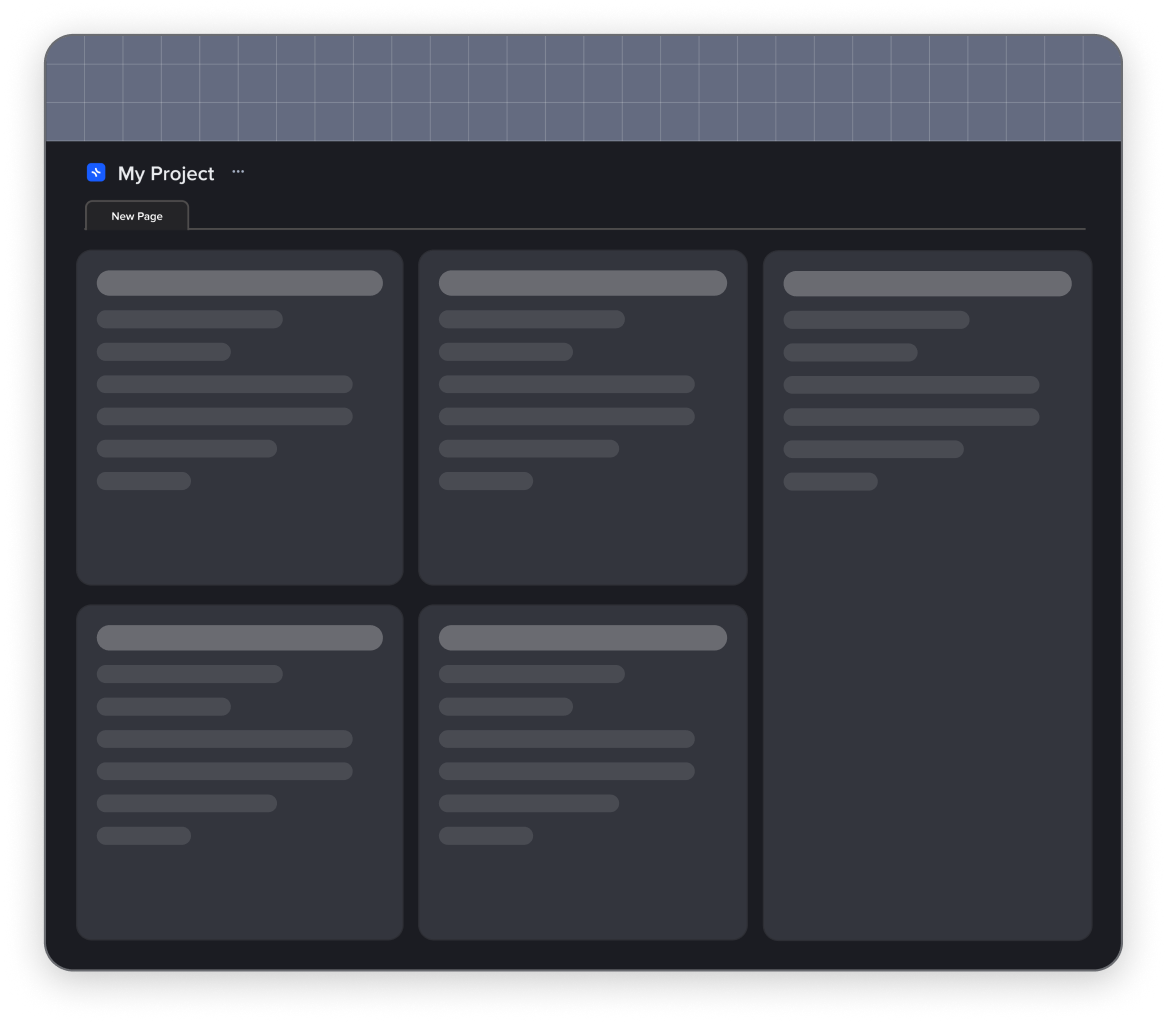Effective time management is among the essential focuses in the professional landscape today. A harmonious integration of work responsibilities, personal aspirations, and perfection in life fulfillment can truly be formidable. However, with effective time management skills, one can negotiate the challenges effectively and tap into the optimum productivity levels.
Time management is an indispensable guide to well-being and organizational success, which could benefit adept use. It deals with mastering practical techniques and provisionary insightful strategies for optimum time by individuals. Therefore, a better balance of work and private life, increased productivity, and achieving duties result from efficient time management practices for professionals.
Let’s learn some effective time management strategies to establish your own, very unique time management system to get the maximum out of each of your days using some of the xTiles templates and approaches that help our team remain productive.
The Importance of Time Management
Time management, the art of managing time, remains instrumental in attaining a better work-life balance and heavily boosting productivity. It encompasses various important elements such as
- prioritizing tasks
- having clear targets
- using time appropriately to attain objectives
Effective time management helps an individual remain focused, avoid all likely distractions, and use the best available time.
Effective time management is the ability to set aside time to manage all the needed or desired activities over a given period of time. That is achieved by
- establishing realistic goals
- setting priorities in life
- managing individual time to attain better focus
- good work-life balance, which enhances overall productivity and well-being
Today, getting a job is much more complicated or even impossible without proficiency in effective time management strategies. This skill on your resume demonstrates a commitment to efficiency, productivity, and maintaining a balanced lifestyle – qualities that employers across various industries highly value,
Time Management Skills Benefits
If an individual can master time management, it can bring a great change in life toward increasing productivity, decreasing stress, and increasing fulfillment.
That is how improved time management can benefit different areas of one’s life positively:
Enhanced Productivity and Efficiency
A few ways an individual may be able to increase their productivity levels include prioritizing what tasks to perform, eliminating potential distractions, and using time management techniques such as the time block technique or Pomodoro.
That will provide the opportunity to achieve more within the given time period and, therefore, the ability to undertake more projects or personal development activities.
Reduced Stress and Improved Work-Life Balance
Poor time management results in missed deadlines, last-minute rushes, and a constant feeling overwhelmed. Time management skills can help a person comfortably control their workload, have an opportunity to meet deadlines without straining, and create time for personal pursuits, hobbies, and relaxation. That can significantly reduce stress levels and promote a healthier work-life balance.
Greater Career Advancement Opportunities
A person who possesses good time management skills will always be counted as reliable and orderly and can bear more responsibilities. This may give a signal for new career opportunities, promotions, or leadership, because employers naturally favor employees who can manage their time wisely and always give up quality work.
Improved Focus and Concentration
Time management techniques reduce the distractions in the mission at hand. That explains why deep work is very rewarding when individuals avoid multitasking and place blocks of uninterrupted time on important work.
In other words, a person can block social media or set their incoming phone calls on pause, but the time is likely to be wasted without understanding how to use the time slot they’ve just created effectively.
Utilizing proven time management techniques, even the most basic ones, is the way to success.
Better Organization and Planning
Time management skills are the organizational systems growing with practice in task prioritization, goal setting, and creating schedules. With experience, people become well-organized and adept at successfully planning and executing their projects or personal endeavors.
Increased Confidence and Self-Esteem
Mastering time management skills might not bring you real joy, but its results do. Success in accomplishing tasks, meeting deadlines, and reaching goals consistently without outside influences on your time has been known to greatly increase people’s confidence and self-esteem.
People who know how to manage their time generally feel much more in control of their situations, which increases their satisfaction with their lives.
Stronger Relationships and Personal Growth

People who manage their time can focus on their hobbies, personal relationships, and self-care activities, which means that they can grow their personal relationships and advance their personal growth and development.
In conclusion, good time management skills will manifest in a balanced, productive, and fulfilling life. They help one stay in control of time, set goals as priorities, and thus create room for personal growth in the professional life.
Time management doesn’t guarantee that you will manage all the tasks no matter what. However, it can guarantee that you will know your important tasks and how to handle them without harming your personal life and within your schedule.
Identifying Priorities
Time management is a critical skill that revolves around effectively identifying and prioritizing tasks. Setting clear priorities allows an individual to strategize how their time and resources are used, be more productive, make better decisions, and realize the desired results from the activities they undertake in life.
Time management is the underlying process of scrutinizing and classifying tasks according to their relevance and urgency in relation to long-term goals. It calls for a step back and a very objective measure of each task’s importance against the background of set deadlines, possible consequences, and an impact on the overall personal or professional objective.
One of the most popular techniques is Eisenhower’s matrix, which divides tasks into four quadrants according to urgency and importance. The highest priority is accorded to tasks that are neither urgent nor important, while those that do not fall within these categories are either delegated or dropped.
Another method of prioritizing tasks is the ABCDE method, in which a person labels every task with a letter depending on its importance level. The most important ones come first, followed by “A” tasks, “B,” and so forth.
Identifying and reducing specific tasks or habits that lower productivity allows people to free up valuable time and even mental resources, refocusing them on other priorities.
Notably, priorities might change or develop over time, and for this reason, effective time management should be flexible and adaptable to changing circumstances. Tasks have to be continuously re-evaluated and reprioritized so that time and effort are directed to the most impactful and critical endeavors.
Setting SMART Goals for Better Time Management
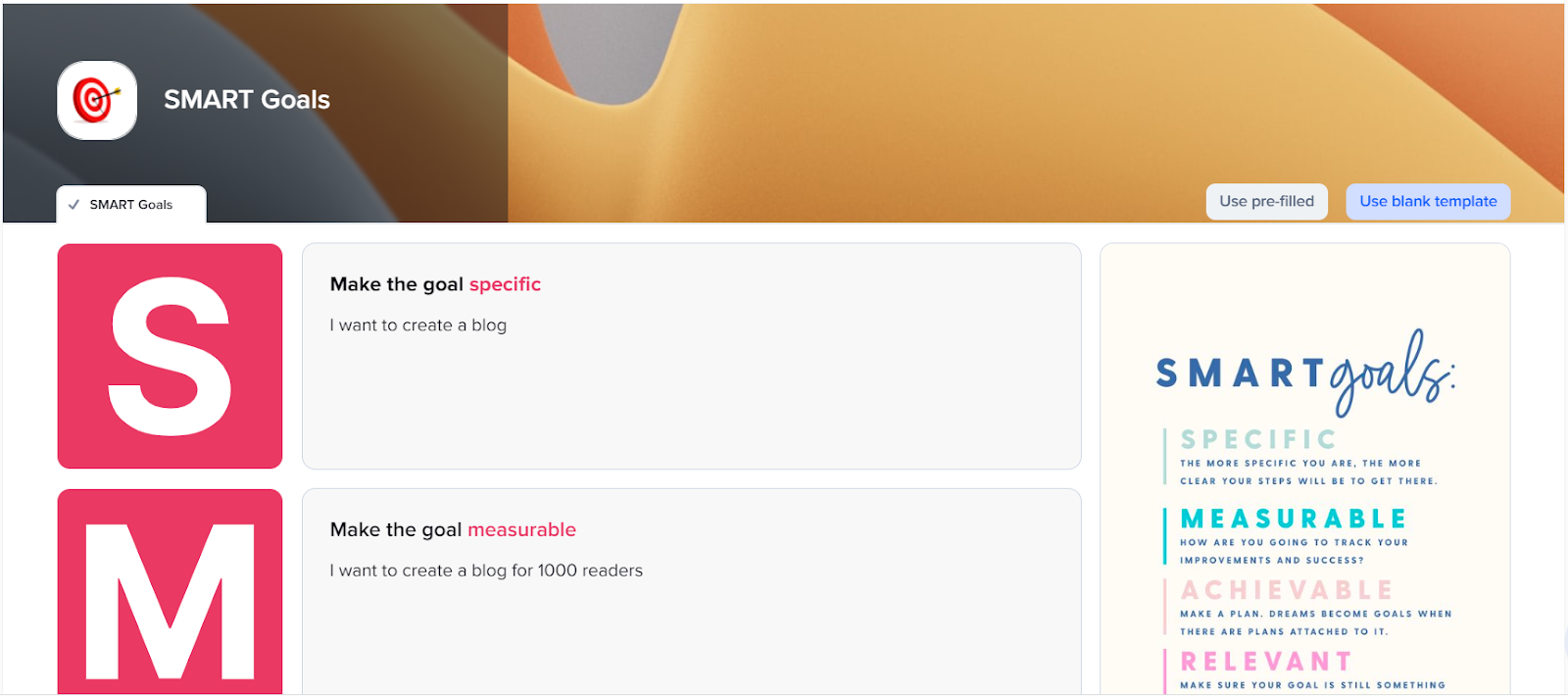
SMART goals are among the best time-management practice. SMART is a mnemonic, which stands for Specific, Measurable, Achievable, Relevant, and Time-bound, which are the key characteristics of a well-elaborated goal. By setting goals that meet these criteria, people can draw clear road maps of their undertakings.
SMART goals guide you, enable progress tracking, ensure you have only manageable tasks on your to-do list, and have a deadline that sustains motivation throughout. Adopting the SMART approach to goals is worth it in ensuring that time is used maximally in pursuing desired outcomes.
It might feel overwhelming at first. However, after a few sessions with the xTiles SMART Template, you will develop a new habit of being able to see through tasks.
Avoiding Procrastination
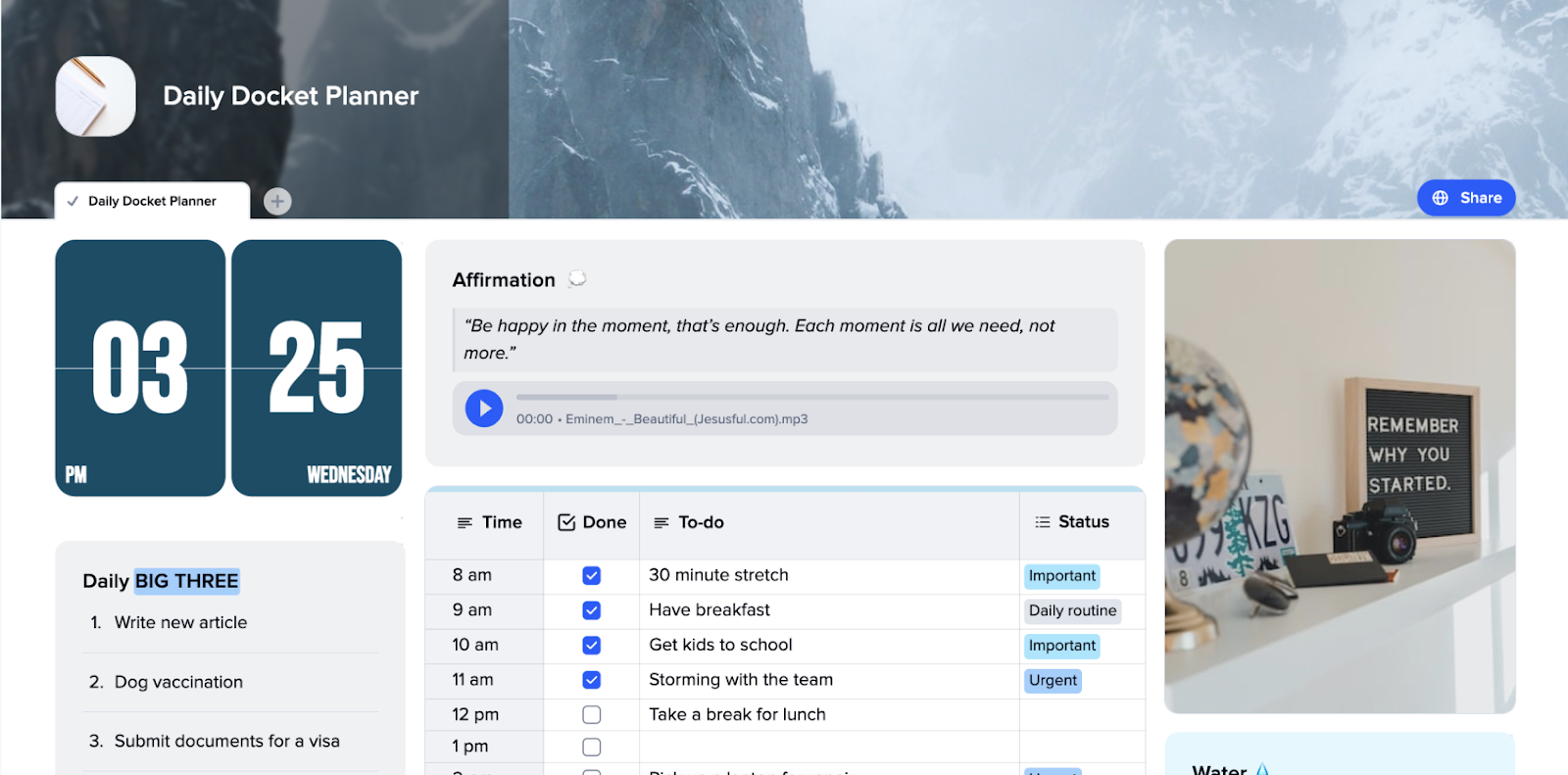
Procrastination might be a vicious habit. People find thousands of reasons not to do a certain task – they might be afraid of failing, lack motivation, or everything else seems more attractive and fun than the work that awaits them.
However, through effective strategies and developing a disciplined and determined mindset, one can overcome the inclination to procrastinate and achieve one’s fullest potential.
A powerful way to fight procrastination is to break down the behemoth tasks that seem too overwhelming into smaller, doable chunks.
That technique may make it much easier and less challenging than worrying about the project as a whole. That serves two purposes: first, it makes the whole task more approachable, and second, it gives one a motivational boost so that he pushes himself to continue.
Setting clear deadlines is one of the core strategies in the war against procrastination. Time constraints bring about urgency and accountability, forcing people to respond to their task priorities and simultaneously making them decide how they will spend their time effectively.
Furthermore, using time management techniques such as the Pomodoro Technique massively helps improve concentration and reduce procrastination. This technique ensures an interchange of focused work sessions, usually 25 minutes long, with small breaks, where an individual can be highly productive without being burnt out or mentally tired.
However, you may choose a different time frame for your deep work method. For example, it can be an hour if you don’t want to interrupt your task or if you want to deal with it as soon as possible.
Creating a Daily Schedule
A good map during personal and career development is among the most effective time management strategies. It is a well-thought-out daily schedule that assists one in reaching the set goals and unlocking the laid potential.
A schedule is more than a to-do list; it can help a person be organized, stay on top of urgent tasks, prioritize responsibilities, and use time effectively. Scheduling could also increase workplace productivity and give people a heightened sense of accomplishment.
It also enhances responsibility and self-discipline, whereby one is supposed to always account for their time and plan what they will do per time as outlined in their program. That brings out the meaning of ownership and responsibility for the growth of individual development and the development of valuable habits that contribute to long-term success.
Maximizing Productivity with Time Blocking
The time block approach has become a powerful tool for improving efficiency and productivity. By devoting proper time blocks to certain activities or tasks, people can focus on their important tasks and achieve a higher level of productivity and efficiency.
The method may be the most useful for complex projects or those with many priorities. It means what it says: deliberately blocking time off into chunks dedicated to certain tasks or objectives. That will ensure that the task receives the highest level of time and attention and foster focus and concentration.
The risks of multitasking and context switching have been proven to diminish productivity and cognitive performance when building fortresses using this method.
As the person commits to doing one task for a set period of time, they are more likely to fully immerse themselves in the task at hand, which can reduce the mental friction associated with jumping from one activity to another.
Another major benefit among many for time blocking is the boost it gives in promoting accountability and discipline through the visualization of one’s schedule and commitments to specified time allotments, hence putting the power in the hands of the time manager for task prioritization.
Furthermore, time-locking planning is flexible and adjustable; the schedule can obviously change when any challenge is removed from the list or when priorities change.
Utilizing Technology to Streamline Time Management
The different time management tools and systems that are applied to individuals and teams are innumerable. They allow processes to become more streamlined, the organization to increase, and the level of productivity to be optimized.
Leading the pack in this tech revolution are task management applications and project management software, which are armed to the teeth to help you manage your time effectively.
These digital solutions provide one centralized place to put everything in order: deadlines set for following up and developing the task from an idea to a reality. That makes such tools perfect for guiding individuals and teams to stay focused, aligned, and accountable for delivering.
These time management tools, including calendars and date scheduling, have all improved personal time management. Such applications synchronize appointment dates, meetings, and deadlines across various platforms and devices, leaving little room for double booking or missed commitments.
Advanced features facilitate coordination and ensure higher efficiency, especially in team-based environments. Such features include, for example, the ability to share calendars and schedule automatically.
Use Apps and AI Tools for an Easy Work Process
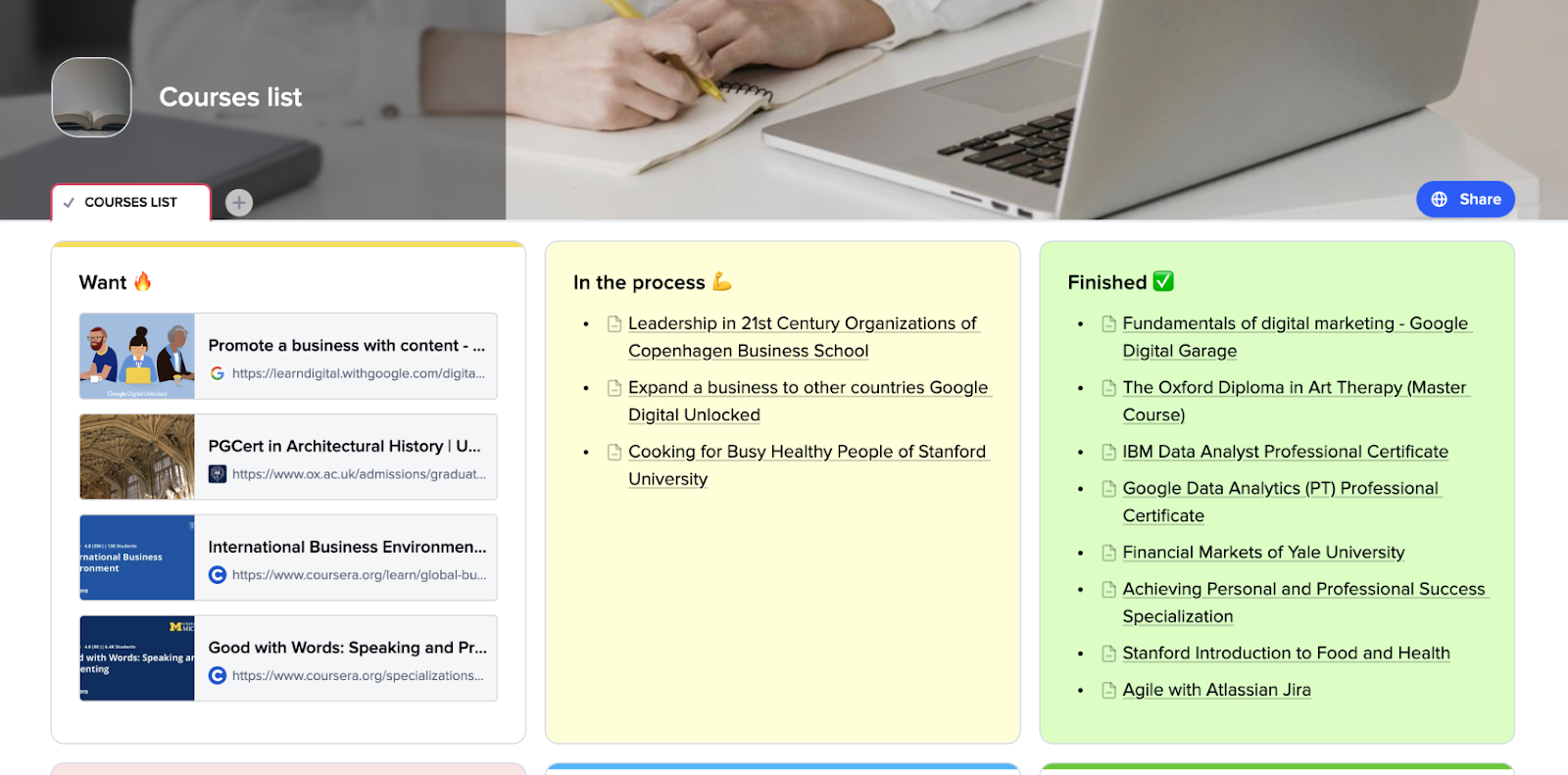
With rapid technology development, productivity gains through applications and AI tools have become a game-changer for streamlining work processes. Such advanced digital solutions help automate repetitive work, increase creativity, and provide a form of collaboration never seen before.
Technically advanced time management systems that can help you stay productive are almost endless these days, and new ones are being released daily.
Project management apps like xTiles provide an overview of everything from tasks and deadlines to collaboration, ensuring everything is organized and in one place.
Time-tracking tools oversee every little detail on the productivity level, which makes improving the workflow for data optimization vastly easier.
AI-enabled tools can make even the most mundane tasks smart, thereby freeing up valuable time and mental resources for more complex endeavors. They free humans from tedious but necessary tasks such as data entry and email management to scheduling and invoicing, so they can focus on more strategic work with high impact.
AI tools boost productivity and help to increase creativity by providing the user with new perspectives and fresh ideas and by surfacing patterns or insights that one couldn’t see before. Creativity fueled by AI opens new levels of innovation and problem-solving capabilities that are synergies between human ingenuity and artificial intelligence.
However, it’s important to remember that AI-based software is only a tool, not a solution. It makes mistakes, just like people do. So, you will need to be creative to get what you need.
The Power of Delegation
Delegation frees up precious time and mental resources to apply them to even higher-priority responsibilities and the organization’s strategic objectives.
It starts with acknowledging that sometimes you simply can’t manage all your tasks, and not all the small tasks on your to-do lists need you. So, you leave important tasks for yourself, and you send other tasks that are less crucial to other team members.
That process will critically evaluate individual capacities, work pressure, and available resources so that the right task performers may be assigned to ensure effective and efficient completion of the tasks.
Effective delegation helps to share not only the burden from a single team member but also helps them receive work as a form of cooperation, empowerment, and skills development. Entrusting others with significant responsibilities means that individuals can tap into the team’s collective intelligence for different views and resources that empower them to apply to yield superior results.
In addition, delegation of tasks becomes a powerful way for professional growth and leadership development. Delegation also builds trust by allowing people to take ownership, which promotes accountability. Further, it opens up other opportunities for them to show their talents and skills, facilitating an even more engaged and motivated workforce.
Balancing Work and Personal Life
That is an essence that can readily be forgotten: the harmonious balance between work and private life. This equilibrium is of paramount importance to the general well-being of the two worlds, not only because it helps maintain productivity and fulfillment.
Striking this balance properly between the two sides requires clearly set boundaries and realistically managed expectations so that there are practical limits to work commitments. It also requires knowing how and when to say “no” when required and being ready to make time for personal activities in spite of the demands of professional responsibility.
Individuals can safeguard against burnout, reduce stress, and nurture enduring happiness in the long run.
Besides, work-life balance, in this case, has been elaborated upon in the need for conscious efforts to create dedicated time for personal pursuits, hobbies, and quality time with loved ones. Having fun, creative adventure activities, or simply unwinding from work to recharge, such silent moments are vehicles for refurbishing the mind, body, and soul.
Finally, work-life balance is not an equation set in stone; it is a delicate dance that requires constant fine-tuning and adaptability. Prioritizing self-care, setting clear expectations, and balancing one’s approach might open the way toward leading a good life in its fullness, where professional aspirations and personal satisfactions meander in harmonious compositions.
Managing Stress
Of course, stress has always been a reality no one can escape. It can affect our productivity, well-being, and effective time management.
Individuals must prioritize stress management as a foundational pillar to truly excel in time management. By incorporating mindfulness practices such as meditation and deep breathing exercises into their daily routines, people can develop an improved sense of presence, clarity, and emotional regulation – all important factors in making appropriate decisions and prioritizing tasks appropriately.
Physical activities have also proven to be powerful stress-busters. Working out helps release endorphins and involves breaking the strains and pressures of daily life to let your mind reset and recharge.
In addition, it is essential that an individual gets enough sleep and rest, for the lack of these can increase stress, compromise cognitive behaviors, and impair general productivity.
Holistic practices that focus on enhancing energy levels and overall resilience also enable individuals to be better managers of stress through a more proactive approach. This will allow them to concentrate better on their priorities, delegate activities, and enjoy time more productively so that they can feel accomplished by the end of the day.
Time Management Techniques for Students
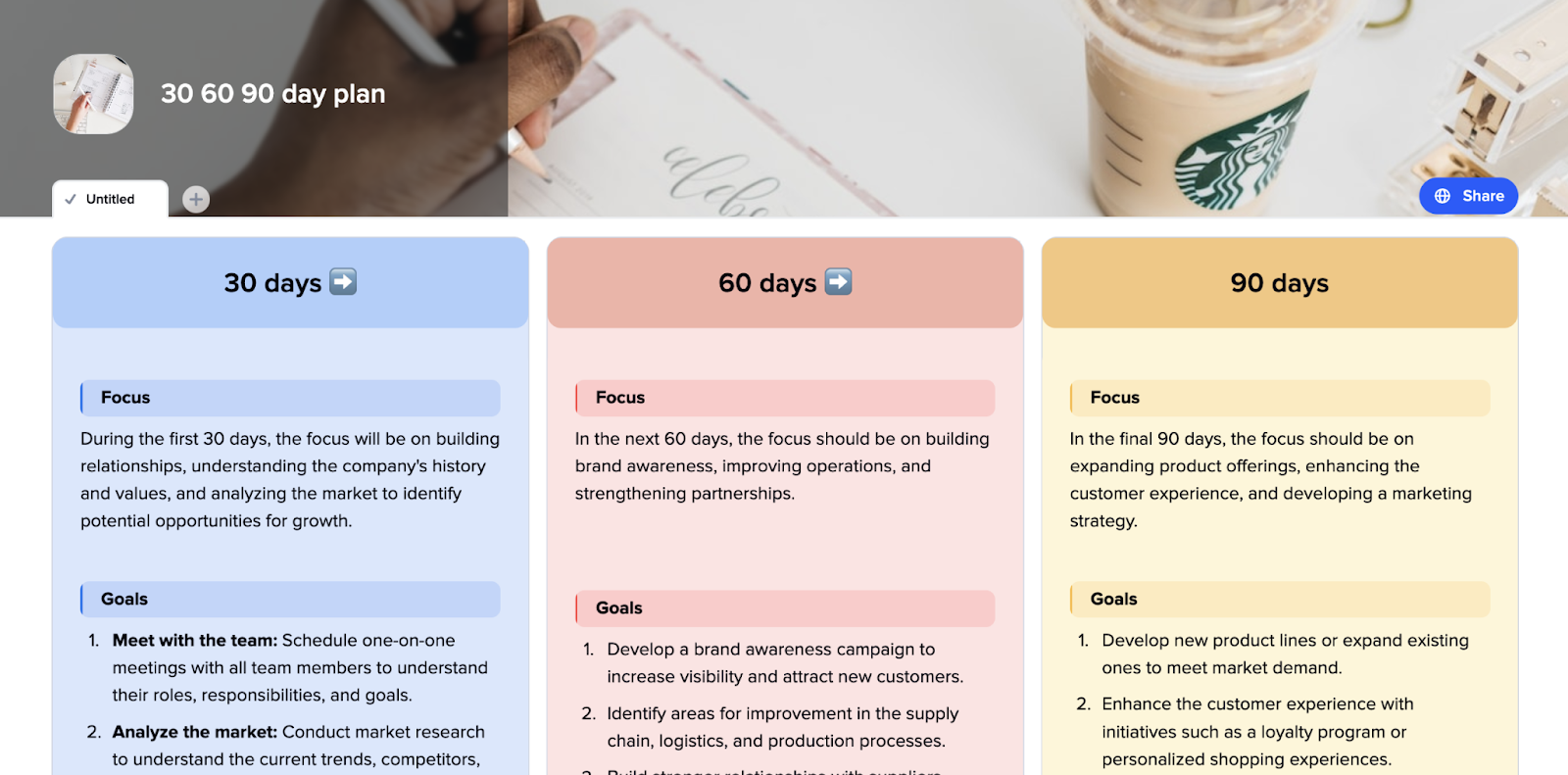
Recognizing the close connection between stress and time management, effectively managing stress becomes imperative for optimal productivity and well-being. Excessive stress can impede performance and have adverse effects on health. Individuals can make significant strides in time management by incorporating stress management techniques such as mindfulness, regular exercise, and adequate sleep. These practices alleviate stress and enhance focus, energy, and overall resilience.
Time Management Techniques for Students
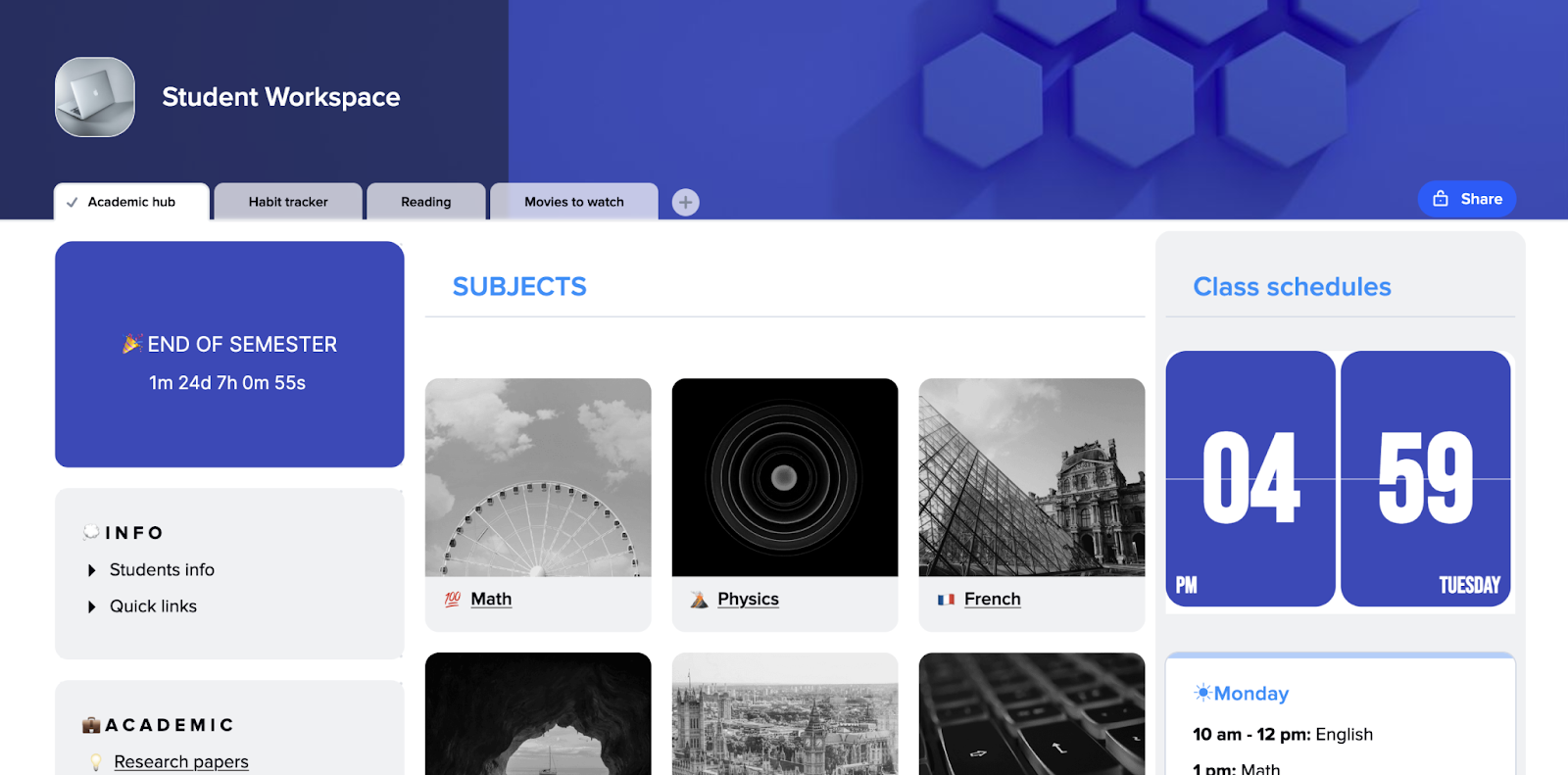
Consequently, mastering time management skills becomes paramount for students who are juggling a dozen deadlines and numerous academic and personal responsibilities. Such techniques become so important that they contribute not only to academic success but also to overall well-being.
You can greatly enhance your organization and time management in the following ways:
- creation of a student workspace
- building criteria for your tasks
- developing a structured study schedule
- employing effective study methods that include concentration on your reading or listening to your presentations
It will help to manage everything in a row and assist in being effective toward academic achievements without neglecting other personal obligations.
Rapid Planning Method
One of the best time management techniques is the rapid planning method (RPM), which emphasizes quickly identifying and tackling the most important and urgent tasks first. To do this, you will need to create a to-do list and group similar tasks based on their urgency and importance, using tools like the Eisenhower Matrix or the Urgent Important Matrix.
By prioritizing tasks in this manner, individuals can ensure that they dedicate their time and energy to the most significant and time-sensitive tasks while still allocating time for less urgent but essential tasks if they can’t delegate them.
Time Blocking Method
Another effective time management strategy is time blocking, which involves dedicating specific time blocks (frames) to different tasks or projects. This technique helps individuals maintain focus by eliminating the need to switch between tasks, minimizing distractions, and constantly increasing productivity.
Time blocking can be particularly useful for deep work tasks that require extended periods of uninterrupted concentration and routine administrative tasks that can be grouped together for efficient completion.
Also, when planning your time blocks for deep work, remember your natural inclinations. If your most productive hours are in the morning, don’t postpone the most important tasks until noon. That will help you manage them much quicker.
Pomodoro Technique
The Pomodoro Technique is another widely acclaimed time management technique that leverages the concept of working in focused intervals followed by regular breaks. Breaking down work into 25-minute chunks, separated by short 5-minute breaks, helps individuals maintain a consistent level of focus and avoid burnout.
Additionally, it encourages individuals to prioritize tasks by committing to specific time blocks, leading to better time management and increased productivity.
Pickle Jar Theory
Implementing strategies like the Pickle Jar Theory, which involves prioritizing significant tasks first and then filling the remaining time with smaller tasks, can help individuals manage their time more effectively.
This approach ensures that the most critical tasks are given the attention and time they deserve while also allowing for the completion of less demanding tasks, fostering a sense of accomplishment and progress.
Summary
Time management is an art to effectively balance work, personal goals, and life. The major elements include setting priorities, developing SMART goals, and avoiding procrastination.
This will help a person be more productive and keep their eyes on the prize, so to speak, because breaking the projects into more manageable pieces, setting deadlines, and employing time management tactics like the Pomodoro Technique, Time Blocking method, Pickle the Jar, and other time management techniques will help.
In the same vein, time management is also aligned with technology through various tools and applications like xTiles, and sharing duties allows a person to divide their workload among many other people and focus on different aspects of the most important parts.
FAQ
What is the most effective time management technique?
There is no right time management technique, as different methods work better for different individuals. However, some popular and effective techniques include the Pomodoro Technique, time blocking, the Rapid Planning Method (RPM), and the Pickle Jar Theory. The key is to experiment with various methods and find the ones that align best with your working style and preferences.
How can I overcome procrastination?
Break larger tasks into smaller, more manageable chunks to make them feel less daunting. Set clear deadlines to create a sense of urgency and accountability. Experiment with techniques like the Pomodoro Technique, which alternates focused work sessions with short breaks to combat mental fatigue and maintain concentration.
How can I balance work and personal life more effectively?
Establish clear boundaries and learn to say no when necessary to avoid overcommitting. Prioritize self-care activities and dedicate quality time for personal pursuits and loved ones. Be flexible and adjust your approach as needed to maintain a harmonious equilibrium between professional and personal responsibilities.
What role can technology play in time management?
Leverage productivity apps, task management software, and calendars to stay organized and prioritize tasks effectively. Automate routine tasks with AI-powered tools to free up mental resources. Integrate time management tools into your workflow for seamless collaboration and progress tracking.


